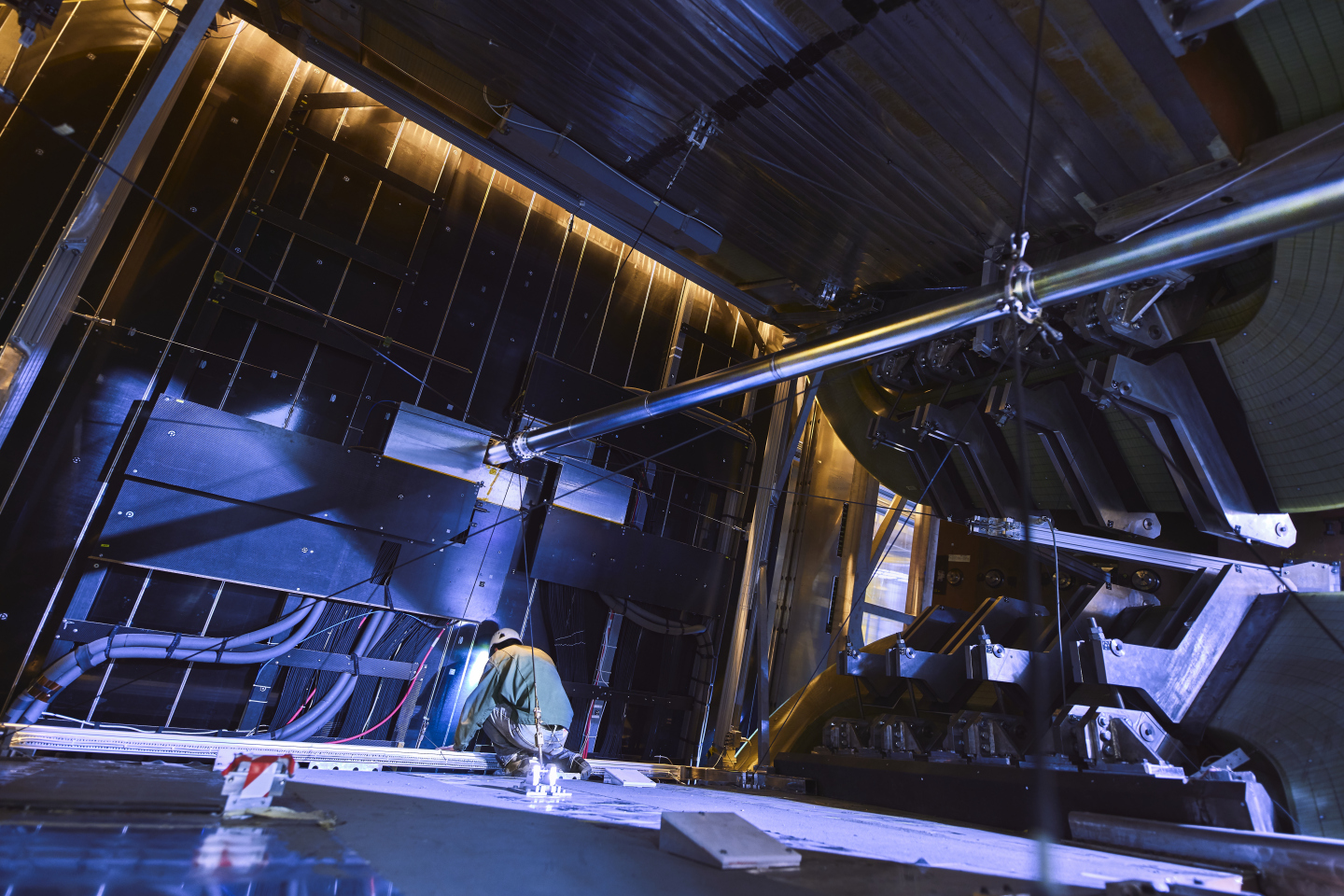
The LHCb detector in 2018. (Image: CERN)
The LHCb experiment has taken a leap in precision physics at the Large Hadron Collider (LHC). In a new paper submitted to Physical Review Letters, the LHCb collaboration reports the first dedicated measurement of the Z boson mass at the LHC, using data from high-energy collisions between protons recorded in 2016 during the collider's second run.
The Z boson is a massive, electrically neutral particle that mediates the weak nuclear force - one of nature's fundamental forces. With a mass of around 91 billion electronvolts (GeV), it ranks among the heaviest known elementary particles. Discovered at CERN over 40 years ago, alongside the W boson, the Z boson played a central role in confirming the Standard Model of particle physics - a breakthrough that led to the 1984 Nobel Prize in Physics. Measuring its mass precisely remains essential for testing the Standard Model and searching for signs of new physics.
The new LHCb measurement is based on a sample of 174 000 Z bosons decaying into pairs of muons, heavier relatives of the electron. The measurement resulted in a mass of 91 184.2 million electronvolts (MeV) with an uncertainty of just 9.5 MeV - or about a hundredth of a per cent.
The result is in line with measurements from the electron-positron LEP collider, the LHC's predecessor, and the CDF experiment at the former proton-antiproton Tevatron collider in the US. What's more, it matches the precision of the Standard Model prediction, which has an uncertainty of 8.8 MeV (see figure below).
The LHCb measurement shows that this level of precision can be achieved at the LHC despite the complex environment of proton-proton collisions, in which many particles are produced simultaneously.
The achievement opens the door to more Z boson mass studies at the LHC and the future High-Luminosity LHC, including much-anticipated analyses from the ATLAS and CMS experiments. Importantly, the experimental uncertainties on Z boson mass measurements are largely independent across the LHC experiments, meaning that an average of the measurements will have a reduced uncertainty.
"The High-Luminosity LHC has the potential to challenge the precision of the Z boson mass measurement from LEP - something that seemed inconceivable at the beginning of the LHC programme," says LHCb spokesperson Vincenzo Vagnoni. "This will pave the way for proposed future colliders, such as the FCC-ee, to achieve an even bigger leap in precision."






